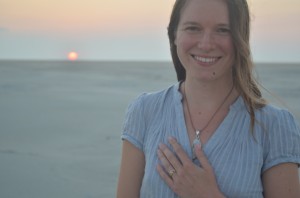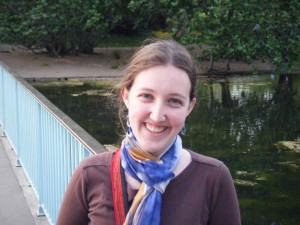This post is written in conjunction with the “Becoming a Public Scholar” course and is directed by Monica A. Coleman.
My college math professor was one of a kind. He affectionately called his calculator “Fritz,” and would put it in his back pocket on cold mornings to warm it up. He would get one haircut per semester, whether he needed it or not, which would involve shaving his entire head—beard included. He taught calculus, but he believed in math. He would say, “Calculus is what got us off the farm, and onto the moon!” and “It was by studying math that the young Napoleon got a scholarship out of Spain, and into France.” But for as much as Prof. Schultz had a kind of faith in mathematics he always described it in pragmatic terms. When teaching us about the theory and history of the Bell Curve, he described it more as a technological innovation by Gauss, rather than a discovery. He enjoyed asking his students the philosophical question: “Is mathematics discovered or created?”
Miroslav Volf similarly believes in religion. He is a Christian theologian, with mostly traditional/orthodox views of the Christian faith. Like my old math professor believed in the power of math to make the world a better place, so does Volf believe in religion. He doesn’t deny the violence done in the name of religion. Nor does he deny the lackadaisical lukewarm faith present in the West. His thesis is that the key to a more peaceful world, and to human flourishing, is not suppression and neutralization of religion, but a thickening of it. Perpetrated violence is the result of thin religion, religion not fully understood, and religion hollowed out for ulterior motives. Peace is found not in suppressing the deep human need to be religious, but in more intentionally learning one’s faith, and being in robust conversation with others of different faiths in the public square.
In A Public Faith: How Followers of Christ Should Serve the Public Good, Volf pushes hard against secularism. He criticizes its overly individualistic focus on personal satisfaction, its failure to identify human flourishing as a communal effort, on the lack of belief in God, and its lack of a clear metaphysic—a view on the inherent structure to the universe. Volf also holds that Jesus Christ is wisdom and the singular way to salvation. Yet he allows for the possibility and necessity of wisdom, and therefore Christ, to be revealed (if not completely) in other religions throughout the world. For this reason, and the Christian mandate to be loving, Volf argues for “religious political pluralism.” In other words, he is open, and thinks all Christians should be open to deep non-coercive open relationships to fellow human beings of various faith backgrounds. He really thinks there is something to be gained for both parties, and that religions need one another to get a clearer understanding of who God is, and how human beings can flourish beyond the conventional and trivial pursuit of individual satisfaction.
It’s too bad Volf doesn’t widen his circle to be in conversation with secular humanists, atheists, agnostics, and religious “nones” as collaborators to whom wisdom has been revealed. This is particularly important to me as I think of friends and mentors of mine who identify this way, many of whom acknowledge the power and potential goodness of religion. And while it would be problematic for some theologians to associate the revelation of wisdom as a kind of technological innovation, it would be fun to imagine new ways of being together, so that wisdom would be discovered and invented anew.
Wesley Menke is a candidate for ordained ministry in the Evangelical Lutheran Church in America. He has over ten years in full time youth ministry, and is working on a thesis about soteriology of youth. He is in his third year of coursework at Claremont School of Theology.
Follow him on twitter: @wesmenke











